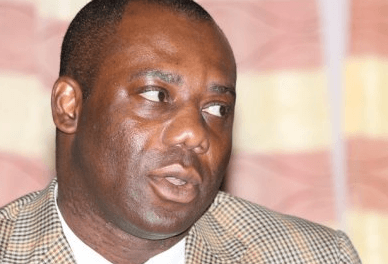Providing functional literacy is a shared responsibility – Education Minister

Dr Mathew Opoku Prempeh, the Minister for Education has noted that the task of providing functional literacy is a shared responsibility between government, civil society and the private sector since it is beneficial to all.
Dr Opoku Prempeh said a literate society acts as a catalyst for national progress, which facilitated community development and inspired individual advancement because it fosters the transformation of the mind towards positive thinking.
In a speech delivered on his behalf at this year’s Literacy Day celebration in Accra, he said functional literacy initiatives needed to be infused with digital literacy to maximize their usefulness and purpose in our current dispensation.
The day was organized by the National Formal Education Department (NFED) on the theme: A Digital World in Ghana: The Case of Functional Literacy”.
Dr Opoku Prempeh said lack of bridges, roads and airfield were not things that impeded the country’s developmental aspirations, but the inability of most citizens to take advantage of digital technology in the day-to-day activities.
He said it was necessary to introduce digital literacy into functional literacy initiatives to maximize their usefulness and purpose in the current dispensation of advance technology.
Dr Opoku Prempeh noted that the government recognised the immense potential of the non-formal education sub-sector in creating job opportunities for the unemployed youth and adult non-literates.
He said: “We will do everything within our power to ensure that adequate resources are provided to facilitate the full-scale implementation of the digital literacy project, which formed part of the Non-Formal Education Division (NFED) of the Education Ministry’s post-literacy programme”.
Dr Opoku Prempeh noted that functional literacy would be rendered useless if it was not linked with information technology and digital revolution, saying that literacy had gone beyond reading, writing and numeracy to include one’s ability to access information on the global information super highway.
Mr Francis Asumadu, the Acting Director of NFED, said the Division was collaborating with the Youth Employment Agency to upscale innovative initiatives to accelerate the National Functional Literacy Programme.
He noted that the Division would undertake literacy and skills development project for head porters (Kayeyei) with the aim of providing better livelihood in vocational literacy.
He said the Division had also planned to establish community-learning centres across the country, which would provide avenues for non-literates to acquire skills in digital technology.
Mr Asumadu said: “We will engage our learners in phone operations to access banking and financial lliteracies such as how to access monies using cards and Automated Teller Machines cards”.
The Acting Director noted that efforts towards eliminating illiteracy from the country required maximum commitment and sustainable resource deployment by government; development partners, the private sector, corporate Ghana and the civil society.
He urged all stakeholders of functional literacy and providers of digital technology services in the country to forge closer links with the NFED to create the needed platform for the non-literate to operate more effectively in a digital world.
Mrs Elizabeth T. K. Sackey, the Deputy Greater Accra Regional Minister, said that it was time the country invested more in the field of Science and Information Communication Technology in her efforts to catch up with the digital world in the fight against unemployment, poverty, hunger and diseases.
She urged all Metropolitan, Municipal and District Assemblies to support the NFED in the performance of their duties to accelerate literacy as well as improve the livelihoods of non-literates, semi-literates and migrants in the Region.
Source: GNA
